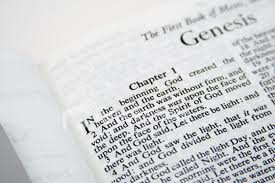When it comes to my knowledge and study of the Bible, I must admit that I have been all over the place. One of my earliest recollections of Bible study was somewhere around 8th or 9th grade. In our weekly religious ed class, the topic for the year was the Old Testament and Abraham. And I would be lying if I didn’t admit that I hated it!!! I did not see any use for studying the Old Testament patriarchs. I don’t think I learned much that year. Frankly, I was too wrapped up in my social life to apply myself to the topic at hand, even at CCD class. (My apologies to the teacher, who did her best!)
Later, as an adult with my first-born baby in tow, I attended a weekly Bible study at my church. It was a profound, spirit-filled experience. The small group of women met on Thursday mornings and it grew from around a dozen people to about 40 regular attendees. The group was open to Christians of any faith and we were respectful of differences in beliefs, concentrating instead on our shared beliefs. Words cannot express the wonderful experience of that Thursday morning group. But as my knowledge grew, so did my family and work obligations. I eventually, reluctantly, stopped participating in the group Bible study.
As time went on, I tried to study the Bible on my own. At various times I would commit to a plan and get very excited about it. I would find a new version of the Bible, or a new book on reading the Bible, and make a resolution to immerse myself in it. First I tried reading the Bible in sequential order, starting with Genesis. My plan was to read straight through to Revelation. But often by the time I got to Leviticus, I would stop, being bogged down with all the laws and regulations. Once I even bought a Bible that was arranged to let me read the complete Bible in one year. Under that plan you read several passages from each of four different books every day. Four different years in a row I made a New Year’s Resolution to read the complete Bible from this book. And by March every year I had given up. The book has remained on my bookshelf ever since, reminding me of my failed attempts to study Holy Scripture.
I think the problem with my method of Bible self-study is that I really didn’t know how to learn what the Bible was saying. I would pray, read a random passage, ponder what it meant, and hope something was sinking in to my mind or my soul. I never really knew if I was supposed to be getting more out of it, but I admit I often did not understand what the passage was about. I think it is because I was not ever seeing the big picture. I only saw bits and pieces.
My guess is that many people share this problem. Some churches encourage people to memorize independent Scripture verses. Or they instruct you to pray and study on just one random verse and listen to what it speaks to you. While both of these methods offer value, with this method we can miss the big picture of what is happening in the story.
In my CBSM classes we are studying the Bible more in-depth, spread over four years. We are able to go slower and address it in more detail, because in the bits-and-pieces method you can miss a lot. For example, unless you read all of Genesis in sequence you may miss how God speaks to several people from different generations, all in an effort to bring man into a redemption partnership with Him for us all. From Adam, Noah, Abraham, Isaac, Jacob, and Joseph, God seeks out those men who become the patriarchs of our faith. And collectively, they work with God to build the foundation of our calling to become a holy people. Now that’s what I want to learn about: studying the Bible to make sure my time here is spent answering God’s personal call to me. After all, we only get one time on this Earth, with no guaranteed number of years. And I have to ask, how am I spending my life?
Something to think about, eh?

I agree that self-directed Bible study for most of us is the less-than-perfect method, though better than no method. My favorite Bible studies have been those led by people who had a deep understanding of the history and customs of the times as well as the original text so they knew what the orginal text was, e.g., which type of "love" is being discussed. I also enjoy the practical application of how the scriptures can be applied to my life today.
ReplyDelete